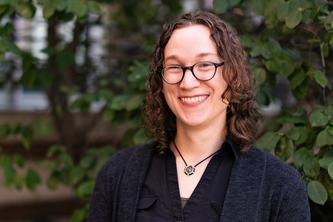
A University of Minnesota research report released today shows the future strength of Minnesota’s economy depends on attracting and integrating international immigrants into its workforce.
According to the report, titled “Immigrants and Minnesota’s Workforce,” demographic trends “paint a troubling picture for the growth of Minnesota’s economy,” and the report notes that “a focus on attracting more immigrants is an imperative for Minnesota in order to address the challenges linked to the slowing growth of the state’s population and labor force.”
The report, commissioned by the Committee on Minnesota Workforce and Immigrants and the University’s Office of the Vice President for Research, aims to inform policymakers, businesspeople, economic development professionals and community leaders about Minnesota’s upcoming workforce challenges and the role of immigrants and refugees in meeting those challenges. The report also highlights promising directions for public and private sector engagement to bolster Minnesota’s future competitiveness.
“We realize that immigration is a hot-button political topic today, but there is simply no getting around what this research highlights: in order to meet our workforce needs across the state, it is imperative that we welcome immigrants and make them want to call Minnesota home,” said Bill Blazar, senior vice president of public affairs and business development with the Minnesota Chamber of Commerce and a member of the committee.
The report, conducted by Humphrey School of Public Affairs associate professor Ryan Allen, Ph.D., predicts that Minnesota’s population and labor force growth will slow without a substantial increase in migration to the state, making it more challenging to fill job vacancies. Minnesota will need to attract about 4.5 times the number of new residents it currently attracts to maintain a 0.5 percent average annual growth in labor force.
In addition to attracting immigrants to meet its future workforce needs, the report notes that the state must also focus on incorporating them into the economy more completely and rapidly, leveraging their existing expertise, and increasing their skills through training and education. Immigrants in Minnesota are currently disproportionately clustered in low-skilled and highly skilled occupations.
“While the report paints a challenging picture for the future growth of Minnesota’s economy, it also offers an important opportunity,” said Eric Schwartz, J.D., dean of the Humphrey School and co-chair of the committee. “These findings help lay the foundation for policymakers’ discussions and communities’ economic development efforts.”
The report comes following the early 2016 formation of the Committee on Minnesota Workforce and Immigrants, organized by then-University Vice President for Research Brian Herman, Ph.D. Herman brought together University researchers and economic development professionals from government and the private sector to discuss the role immigrants play in Minnesota’s current and future workforce needs.
The committee is led by University Economic Development (UED) Executive Director Maura Donovan and Schwartz with representatives from the Minnesota Chamber of Commerce, Greater MSP, Governor’s Workforce Development Board, Minnesota Department of Employment and Economic Development, Minnesota Department of Human Services, and Greater St. Cloud Development Corporation, among others.
"We at UED were proud to work with Professor Allen and the Committee members to prepare this report," said Donovan. "Our office's role is to connect businesses and communities to the resources of the University of Minnesota--in this case, high quality research that can help inform policymakers, community leaders and businesses as they consider ways to help grow Minnesota's economy.”
The report is accompanied by two related documents: “Case Studies of Immigrant Integration in Minnesota,” with examples from Worthington and Rochester and around faith-based communities; and a literature review of immigrant workforce.
- Categories:
- Science and Technology





